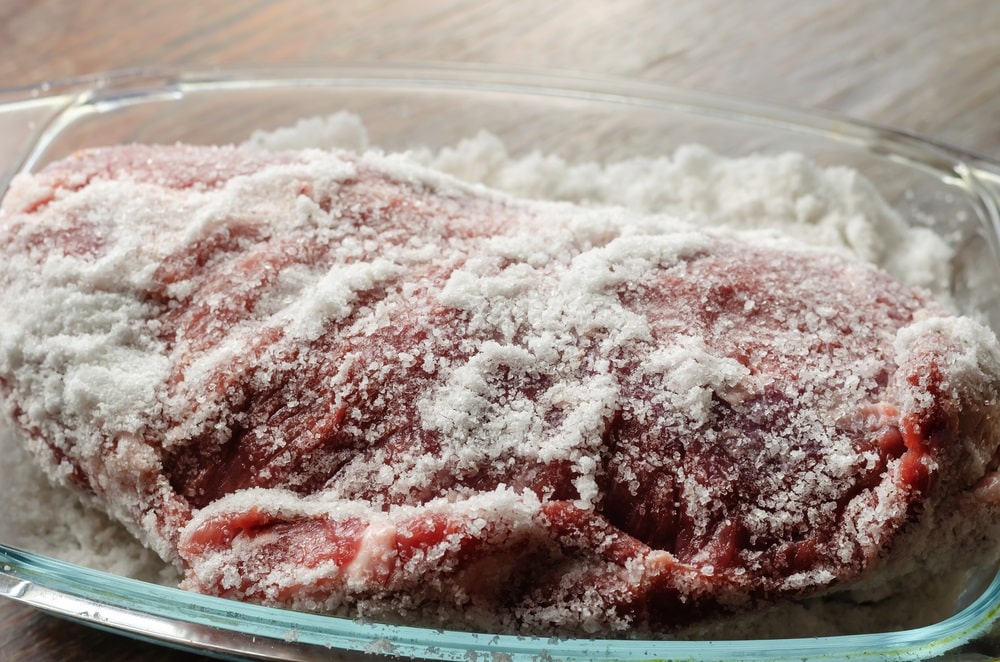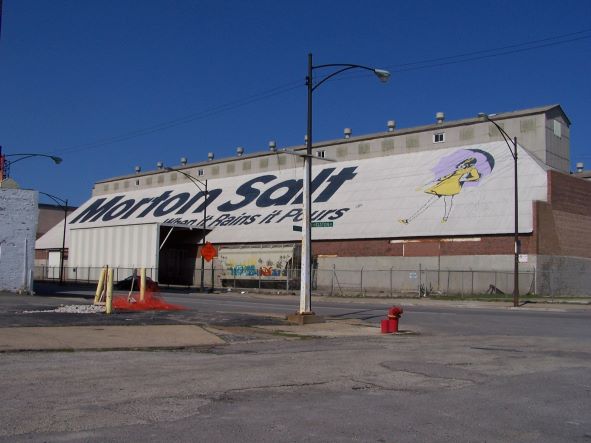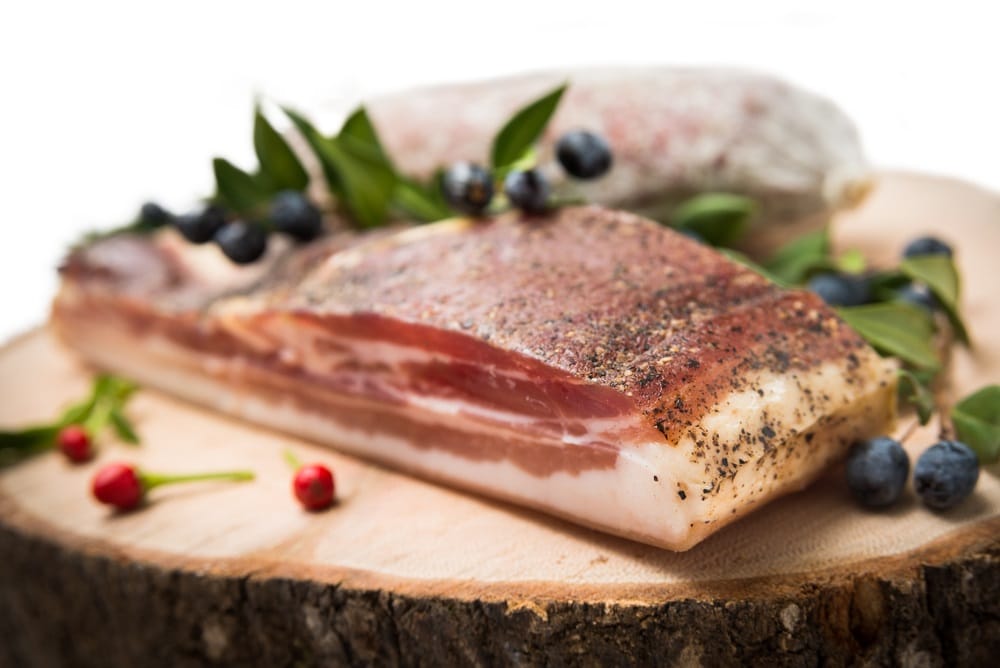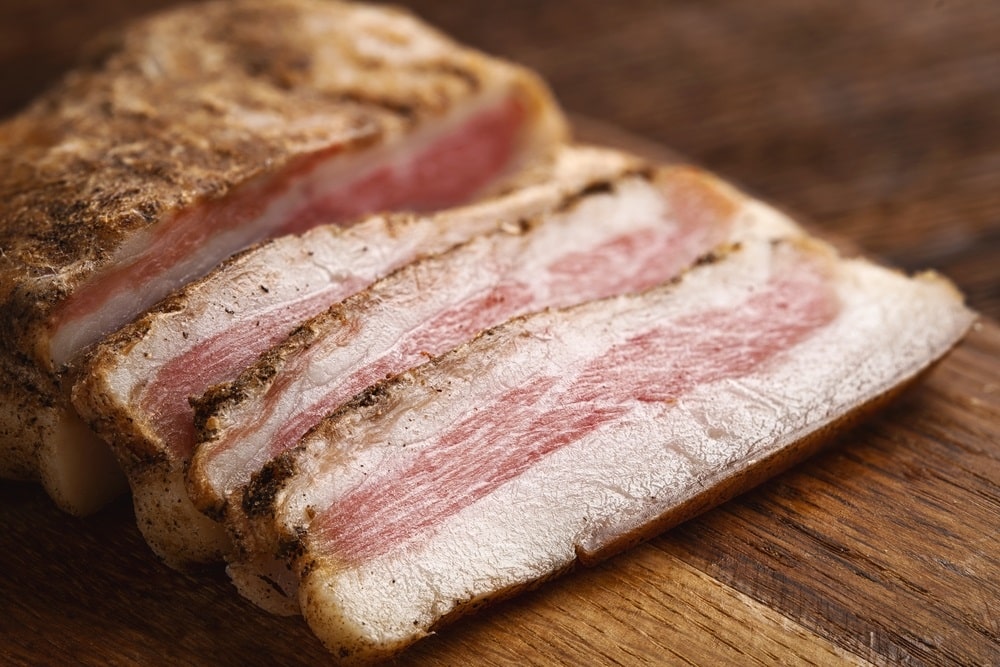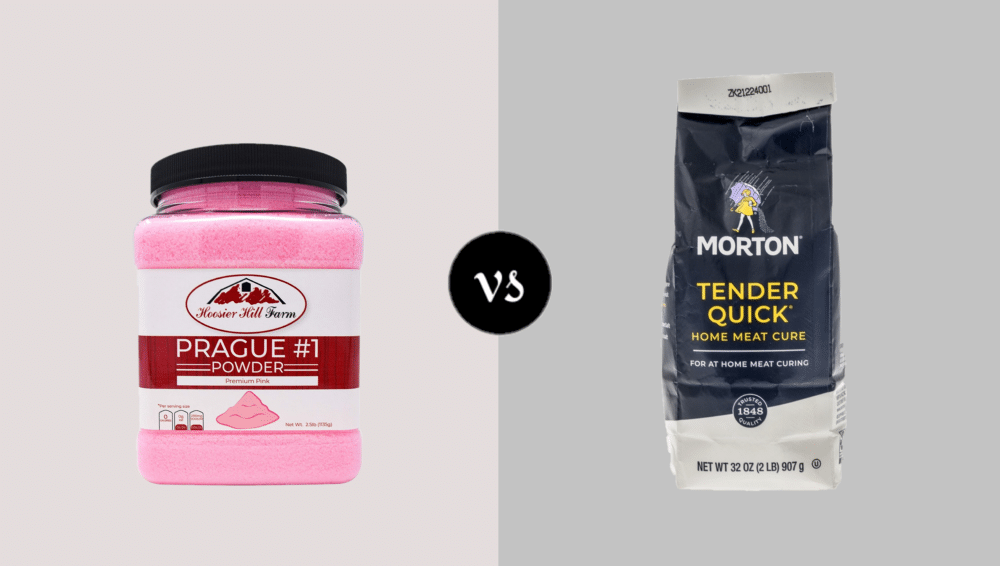
Curing meat entails preserving it, often with salt. The idea is to preserve the meat, controlling the growth of mold and bacteria. Today, salt still plays a preservation role, but to a lesser degree because of our sophisticated refrigeration systems.
For sheer convenience, you can buy flavored salt that also makes your meat super tasty. Morton Tender Quick is a fast-cure mix that also gives meat an attractive color.
You also get Prague Powder, so which one do you choose? Are they both safe to use in your kitchen? Can you salt the meat on your dinner plate with them?
Prague powder is also a curing mixture, and it also gives meat an attractive pink color. It is also used to prevent the growth of Clostridium botulinum bacteria.
If you have to choose between the two curing powders, which one will it be among the two popular curing salts?
Tender Quick vs. Prague Powder
Tender Quick
It’s a mix of salt, sugar, sodium nitrate, and propylene glycol. All the ingredients in Tender Quick work to slow spoilage. The curing agent helps inhibit the growth of E. coli and other bacteria that can make a person sick.
Tender Quick also maintains the meat’s color and flavor. It’s a fast-acting cure used on a short-term basis—not longer than a few days. It works particularly well on smaller cuts of meat, and it can also be used with fish.
Morton Tender Quick has been made to perfectly preserve your meats with a bonus – adding tantalizingly delicious flavor.
A popular, trusted brand
You might say, What is Morton Tender Quick?’ ‘Can it be trusted?’ Yes, it’s a brand that is a staple in America. It has been used in regular American kitchens as well as by chefs in hotels and restaurants for decades.
It’s not a tenderizer
In fact, the history of Tender Quick goes way back to the Gold Rush days. You can safely use it to preserve your meat. Don’t be mistaken though as Morton Tender Quick is used for curing meat and isn’t a meat tenderizer.
You can use it on fresh or frozen meat. You can use a tablespoon of Tender Quick for each pound of meat you have.
You rub it into the meat and then place the meat in a clean, food-grade plastic bag. Tie it securely and place it in the fridge for anything up to 8 hours. For larger cuts of meat, you can allow up to 24 hours in the fridge.
Prague Powder
This is a mixture of salt and sodium nitrite. Unlike Tender Quick, it is used for long-term curing of meats and is a slow-acting cure. Often, it is used with other ingredients and then rubbed onto the meat before being hung out to dry.
Prague Powder is also referred to as Tinted Cure or Pink Curing Salt. Just like with Tender Quick, you can use it for all kinds of meats. You can also use it for fish.
As with Tender Quick, it also contains sodium nitrate. It is made up of 6.25% sodium nitrite and 93.75% sodium chloride.
Many people, on checking the ingredients of a food product, may not like seeing sodium nitrate. It is, however, an important ingredient in the meat-curing process.
If you want to avoid food poisoning, then use Prague powder. It also gives the meat a distinct flavor. It also helps to give the meat a nice pinkish color.
It’s not your regular table salt
Prague powder isn’t something that you put on your table at supper time to salt your food. Doing so can make you sick. It is specifically used for curing meat.
When curing meat or fish, it is of the utmost importance to use the stipulated amount of Prague powder. Using the wrong amount can impact your health and the taste of the meat.
It is recommended that you add one ounce of Prague powder to every 25 pounds of meat or fish.
Sodium Nitrate
As you can see, both of these curing salts contain sodium nitrite. It’s a common preservative used in cured meat products.
It is added to processed and cured meats to preserve shelf life and to give meat an appealing color. While nitrates are part of a regular diet, high levels can cause cancer and other diseases.
That is why it is important to follow the instructions in your recipe or on the labeling. Your daily intake of sodium nitrate shouldn’t exceed 3.7 milligrams per kilo of body weight.
Tender Quick and Prague Powder Are Not Interchangeable
Tender Quick and Prague Powder are very similar when it comes to good curing salts used for meat and fish.
But which one is better? Which one is used more by regular home cooks and professional chefs? Both products have similar purposes, but they aren’t interchangeable. The one you settle on will depend on the recipe.
- Tender Quick
Designed for use in curing meat quickly. It is a great option for using at home for all those smaller cuts of meat, such as poultry and bacon.
- Prague powder
On the other hand, is typically used for larger cuts of meat, such as salami, and for brining some kinds of fish. It isn’t recommended for home curing.
The reason for this is that it does require careful measuring to ensure the correct amount of sodium nitrite is used. We know that Prague powder contains sodium nitrite and 93% table salt. In other words, it contains 1 part sodium nitrite and 15 parts salt.
If you are looking for a quick way to cure smaller cuts of meat at home, Tender Quick will in all likelihood be your better option. If you are dry-curing large cuts of meat, Prague powder will be the wiser choice.
Whichever one you choose, it is always most important to follow the instructions exactly as suggested, for safety’s sake.
